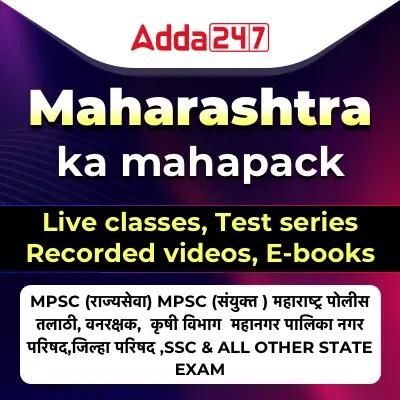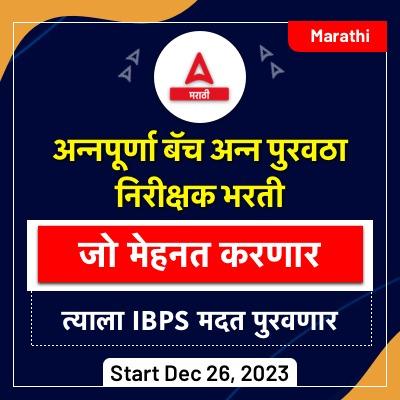Table of Contents
Direct – Indirect Speech
Direct – Indirect Speech: महाराष्ट्रातील तसेच राज्यातील बहुतेक स्पर्धा परीक्षेचा महत्वाचा विषय म्हणजे इंग्लिश. इंग्लिश विषयात जास्तकरून इंग्लिश ग्रामर वर प्रश्न विचारले जातात. नेहमीच्या सरावाने इंग्लिश विषयात चांगले गुण मिळू शकतात. आगामी काळातील सरळसेवा भरती जसे की, जिल्हा न्यायालय भरती आणि इतर स्पर्धा परीक्षांमध्ये इंग्लिश ग्रामरला विशेष महत्त्व आहे. इंग्लिश ग्रामर चे रोज वाचन फायदेशीर ठरते. इंग्लिश ग्रामर मधील एक महत्वपूर्ण घटक म्हणजे Direct – Indirect Speech. यावर परीक्षेत हमखास 1 ते 2 प्रश्न विचारले जाऊ शकतात. या लेखात आपण Direct – Indirect Speech व त्यातील महत्वाचे नियम यावर माहिती पाहणार आहोत.
Direct – Indirect Speech: विहंगावलोकन
इंग्रजी व्याकरणाचा अभ्यास करतांना Direct – Indirect Speech या घटकाचा अभ्यास करणे महत्वाचे ठरते. या लेखात Direct – Indirect Speechबद्दल सविस्तर माहिती दिली आहे.
| Direct – Indirect Speech: विहंगावलोकन | |
| श्रेणी | अभ्यास साहित्य |
| उपयोगिता | जिल्हा न्यायालय आणि इतर सर्व स्पर्धा परीक्षांसाठी उपयुक्त |
| विषय | इंग्रजी व्याकरण |
| लेखाचे नाव | Direct – Indirect Speech |
| लेखातील प्रमुख मुद्दे |
|
Direct – Indirect Speech
English Grammar for Competitive Exams: Direct – Indirect Speech: आपण एखाद्या व्यक्तीचे बोलणे ऐकतो तेव्हा ते प्रत्यक्ष कथन (Direct speech) असते, हेच बोलणे ज्यावेळी ऐकणारी व्यक्ती काही काळाने दुसऱ्याला सांगते त्यावेळी त्या मूळ बोलण्यात जे योग्य ते बद्दल केले जातात त्याला अप्रत्यक्ष कथन (Indirect Speech) असे म्हणतात.
When we express someone’s words in our own words, it is called “Indirect Speech” and when we express someone’s words as it is, it is called “Direct Speech “.
Example: They said, “We will be partying tonight.” (Direct Speech)
They said that they would be partying that night. (Indirect Speech)
Direct Speech चे Indirect Speech मध्ये रुपांतर करतांनाचे नियम खालीलप्रमाणे आहेत.
- Reporting verb (बोलणाऱ्याची क्रिया दर्शविणारा शब्द) is changed according to the form and sense of the sentence.
- Inverted commas are removed in the indirect speech.
- Connective word is used at the beginning of the reported speech.
- A verb of the reported speech (बोलणाऱ्याच्या तोंडचे शब्द) is changed according to the form and sense of the sentence.
- Persons & Helping Verbs of the reported speech are changed.
Rules of change of Pronouns
| Nominative | Possessive | Objective | Reflexive |
|---|---|---|---|
| I | My | Me | Myself |
| We | Our | Us | Ourselves |
| You | Yours | You | Yourself |
| He | His | Him | Himself |
| She | Her | Her | Herself |
| They | Their | Them | Themselves |
Pronouns (सर्वनामे) are changed as per the SON rule where SON refers to:
- S stands for Subject
- O stands for Object
- N stands for No change.
- Here, First-person changes to the subject of Reporting Verb
- Second person changes to Object of Reporting Verb
- There is no change if it is a Third person.
Rule No 1.
1st Person of the pronoun of Reported speech is changed according to the Subject of Reporting verb of the sentence.
Direct: He says, “I am in ninth class.”
Indirect: He says that she is in ninth class.
Rule No 2.
2nd Person of the pronoun of Reported speech is changed according to Object of Reporting verb in the sentence.
Direct: He says to me, “you have done your work”
Indirect: He tells me that I have done my work.
Rule No 3.
3rd Person of Pronoun of Reported speech is not changed.
Direct: She says, “He does not work hard”
Indirect: She says that he does not work hard.
Rules of change of verb or Tense
Rule No.1
When the reporting verb is given in Present or Future tense then there will be no change in the verb or tense of the Reported speech in the sentence.
Direct: The teacher says, “Ram performs on the stage”
Indirect: The teacher says that Ram performs on the stage.
Direct: The teacher is saying, “Ram performs on the stage”
Indirect: The teacher is saying that Ram performs on the stage.
Rule No.2
When the reporting verb is given in Past tense then the tense of the verb of Reported Speech will change into corresponding Past tense.
Direct: The teacher said, “I am suffering from cancer.”
Indirect: The teacher said that she was suffering from cancer.
Changes from Past form in an indirect speech from the verb in Reported speech.
- Simple present changes to Simple Past
- Present Continuous changes to Past Continuous
- Present Perfect changes to Past Perfect
- Present Perfect Continuous changes to Past Perfect Continuous
- Simple Past changes to Past Perfect
- Past Continuous changes to Past Perfect Continuous
- In Future Tense will/Shall changes to would
- Can changes to Could
- May changes to Might
Exceptional cases of Rule 2
Exception 1:
When the Reporting speech has Universal Truth or Habitual fact then there is no change in the Tense.
Direct: Our teacher said, “The Mars is round”
Indirect: Our teacher said that the mars is round.( Universal Truth)
Exception 2:
When the reporting speech has Past Historical Fact then there is no change in the Tense.
Exception 3:
When the Reporting speech has two actions to be happening at a time when there is no change in the Tense.
Direct: He said “My sister was making lunch when I was studying”
Indirect: He said that his sister was making lunch when she was studying.
Exception 4:
When Reporting speech has some Imagined Condition then there is no change in the Tense.
Direct: He said, “If I were rich, I would help him.”
Indirect: He said that if he were rich he would help him.
Some other changes that take place when we change Direct Speech to Indirect Speech.
| Here | Changes to | There |
| Now | Changes to | Then |
| This | Changes to | That |
| These | Changes to | Those |
| Today | Changes to | That day |
| To-night | Changes to | That night |
| Yesterday | Changes to | The previous day |
| Last night | Changes to | The previous night |
| Last week | Changes to | The previous week |
| Tomorrow | Changes to | The next day |
| Next Week | Changes to | The following week |
| Ago | Changes to | Before |
| Thus | Changes to | so |
| Hence | Changes to | Thence |
| Hither | Changes to | Thither |
| Come | Changes to | Go |
Rules for Change in Narration of different types of sentences
Assertive Sentences
Rule 1
- When there is no object in the subject after Reporting verb there it should not be changed.
- When there is some object in a sentence after Reporting verb then say is changed to tell, says to tells and said to told.
- As per the context said to can be replaced by replied, informed, stated, added, remarked, asserted, assured, pleaded, reminded, reported or complained etc.
Rule 2
- We put conjunction that in place of “ ”.
- We generally Change the pronouns of the Reported speech as enlisted earlier.
Examples –
Direct: He said to me, “I shall sleep now”
Indirect: He told me that he would play then.
Direct – Indirect Speech: नमुना प्रश्न
Q1. The boss said to him,”Please tell me what the old man said today.”
(a) The boss requested him to tell him what the old man had said that day.
(b) The boss requested him to tell him what the old man had said today.
(c) The boss requested him to tell him what the old man said that day.
(d) The boss requested him to tell him what the old man said today.
Ans. (a)
Q2. He said,”She had been weeping for an hour.”
(a) He says that she was weeping for an hour.
(b) He said that she was weeping for an hour.
(c) He said that she has been weeping for an hour.
(d) He said that she had been weeping for an hour.
Ans. (d)
Q3. The host said to his guests, “Please consider this place as your home.”
(a) The host requested his guests to have considered that place as their home.
(b) The host requests his guests for considering that place as their home.
(c) The host requested his guests to consider that place as your home.
(d) The host requested his guests to consider that place as their home.
Ans. (d)
Q4. The vendor said to us, “These mangoes will ripen in three days.”
(a) The vendor says that those mangoes would ripen in three days.
(b) The vendor informed us that those mangoes will ripen in three days.
(c) The vendor says that those mangoes will be ripe in three days.
(d) The vendor informed us that those mangoes would ripen in three days.
Ans. (d)
Q5. He said to the physician, “I need to get well soon.”
(a) He told the physician that he needed to get well soon.
(b) He told the physician that I needed to get well soon.
(c) He says to the physician that he needed to get well soon.
(d) He told the physician that he needs to get well soon.
Ans. (a)
Q6. Kiran asked me, “Did you see the cricket match on television last night.
(a) Kiran asked me whether I saw the cricket match on television the earlier night.
(b) Kiran asked me whether I had seen the cricket match on television the previous night.
(c) Kiran asked me did I see the cricket match on television last night.
(d) Kiran asked me whether I had seen the cricket match on television last night.
Ans. (b)
Q7. David said to Anna, “Mona will leave for her native place tomorrow.”
(a) David told Anna that Mona will leave for her native place tomorrow.
(b) David told Anna that Mona left for her native place the next day.
(c) David told to Anna that Mona would be leaving for her native place tomorrow.
(d) David told Anna that Mona would leave for her native place the next day.
Ans. (d)
Direction: Find out the error in each of the following sentences, if there is no error, answer is (e). Avoid punctuation mistake (if any).
1. (a) They /(b) said that/(c) they will go/(d) next day. /(e) No error
2. (a) They said/(b) that I /(c) shall work hard/ (d) if I want to pass. /(e) no error
3. (a) He asked her / (b) that if / (c)she was going / (d) to attend the meeting. / (e) No error
4. (a) Shweta asked Harish / (b) that what / (c) had not / (d) happened. / (e) No error
5. (a) Seema asked / (b) me / (c) what did I say / (d) about her. /(e) No error
Solutions:
1. (c); ‘Would’ should be used in place of ‘will’. Since, Repotting verb in past, hence, the reported speech should also be in past.
2. (c); ‘Should’ and ‘wanted’ should be used in place of ‘shall’ and ‘want’. Since, Repotting verb in past, hence, the reported speech should also be in past.
3. (b); ‘That’ should not be used here, since when an interrogative sentence is reposted, then, conjunctions ‘if/whether’ is used.
4. (b); ‘that’ should not be used here, since, when an interrogative sentence starting with ‘wh’ family is reported, then, no conjunction is used.
5. (c); ‘I said should be used in place of ‘did I say’. Because, an interrogative form is not used in reported speech.
महाराष्ट्रातील सर्व स्पर्धा परीक्षांसाठी ऑनलाईन क्लास, व्हिडिओ कोर्स, टेस्ट सिरीज, पुस्तके आणि इतर अभ्यास साहित्य खाली दिलेल्या लिंक वर क्लिक करून मिळावा.
अड्डा 247 मराठी अँप | अड्डा 247 मराठी टेलिग्राम ग्रुप









